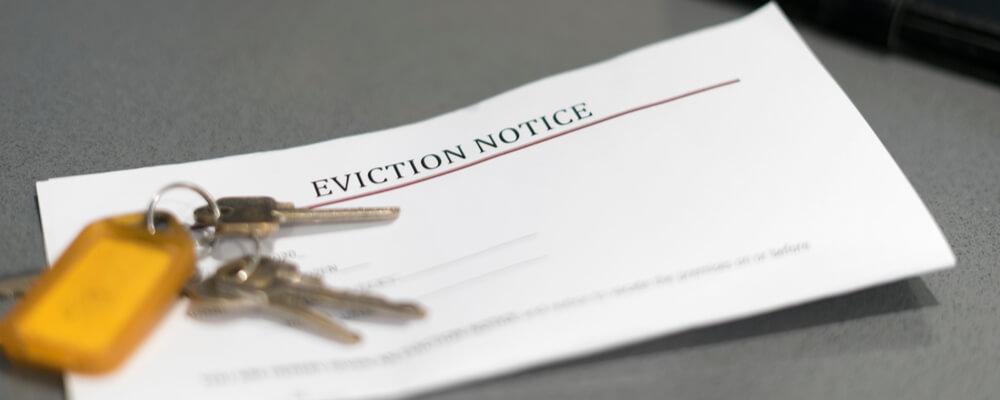What Are the Common Instances Dealt With by an Expulsion Lawyer in Tenant Disputes?
Expulsion lawyers play a critical role in resolving a range of occupant disputes that can develop in rental agreements. Usual situations consist of non-payment of rent, lease infractions, and wrongful expulsion cases, among others. These experts browse complex legal structures to stand for both tenants and property owners, making certain that all parties comprehend their legal rights and obligations. The complexities of each instance can considerably affect the end result, questioning about the efficiency of legal approaches employed. Comprehending the nuances of these conflicts can light up the more comprehensive effects for lessee rights and property owner obligations. What might these ramifications expose regarding the housing landscape?
Non-Payment of Lease
Non-payment of lease is a prevalent concern that can bring about complicated legal disagreements in between property managers and renters. When occupants stop working to pay their rent promptly, property managers may encounter monetary pressure, triggering them to launch lawful procedures. The expulsion process usually starts with a created notice, demanding settlement within a defined timeframe. If the lessee does not conform, the landlord may declare eviction in the ideal court.
In lots of jurisdictions, the legal structure bordering non-payment of rent is created to shield both parties. Occupants may have defenses readily available, such as alleging uninhabitable living conditions or inappropriate notification. Proprietors must adhere to strict procedures mandated by legislation, including supplying appropriate notification and submitting the essential documentation.
An expulsion legal representative plays a vital function in navigating these disagreements. For occupants, legal representation can give understanding into possible defenses and assist work out favorable end results.
Lease Infractions
Lease violations stand for a considerable issue in landlord-tenant relationships, as they can cause disputes and possible eviction proceedings. When lessees stop working to stick to the terms detailed in their lease agreements, these infractions occur. Usual examples consist of unapproved subletting, failure to keep tidiness, maintaining animals without approval, or engaging in disruptive actions that affects various other tenants.
Landlords have a legal commitment to deal with these offenses quickly - eviction attorney miami. Commonly, they will provide a written notification to the lessee, detailing the certain violation and offering a stated duration for rectification. If the renter stops working to comply, the proprietor might initiate eviction procedures, which usually necessitates legal treatment
Expulsion legal representatives play a critical role in these circumstances by making sure that the expulsion procedure sticks to local laws and policies. They can help property managers in collecting required evidence, preparing papers, and representing them in court. Furthermore, occupants encountering claims of lease offenses might look for lawful counsel to contest the claims or work out terms to avoid eviction. Understanding the nuances of lease violations is essential for both parties, as it helps keep a legal and fair rental atmosphere.
Wrongful Expulsion Claims
Wrongful expulsion insurance claims are an important facet of landlord-tenant law, attending to situations where a renter is eliminated from a rental building without lawful validation. Such cases usually occur when landlords fall short to comply with correct legal procedures throughout the eviction procedure, including not providing the called for notice or performing evictions without a court order.
The lawful framework bordering wrongful eviction varies by territory however usually supplies renters with the right to oppose an eviction if it does not have a legitimate reason or if due procedure was not observed. Common grounds for wrongful expulsion claims consist of vindictive actions by the proprietor, eviction based on biased reasons, or expulsion for factors that break regional or state regulations.
In pursuing a wrongful eviction case, occupants might seek different solutions, including reinstatement to the rental residential property, problems for lost personal belongings or emotional distress, and lawful costs. An eviction attorney plays a critical role in these cases, helping occupants in collecting proof, navigating court procedures, and promoting for their legal rights.
Comprehending the nuances of wrongful eviction claims is essential for both proprietors and renters to guarantee compliance with the regulation and to secure their particular interests within the rental relationship.
Lessee Legal Right Issues
Numerous tenants might be not aware of their civil liberties, which can cause exploitation and unfair therapy by property managers. Comprehending tenant civil liberties is vital for preserving a reasonable rental connection and protecting oneself from potential abuses. Common tenant rights include the right to a habitable living setting, protection versus discrimination, and the right to privacy.
Lessees deserve to demand necessary repairs and maintenance, and property managers are lawfully bound to attend to these issues immediately. In addition, renters are protected under reasonable real estate laws, which ban about his discrimination based on race, sex, religion, and other factors.
Moreover, renters deserve to privacy, suggesting property managers can not enter the rental without proper notice, other than in emergencies. Several renters are likewise not aware of their civil liberties regarding safety deposits, including the demand for property owners to return deposits within a certain timeframe and provide itemized deductions for any problems.
When disagreements emerge over lessee rights, an eviction legal representative can offer necessary support and depiction to help tenants assert their rights and browse complicated legal circumstances. Understanding of these rights equips occupants to stand against unfair practices and secure their real estate stability.
Residential Property Damages Conflicts
Residential property damages disagreements often occur between lessees and proprietors, complicating the rental relationship and possibly causing legal action. These disagreements commonly focus around claims of problems incurred throughout the tenancy that exceed normal wear and tear. Landlords might seek settlement for repair services they believe are the outcome of occupant neglect, while tenants might dispute such cases, suggesting that the problems were pre-existing or an outcome of aspects beyond their control.

In a lot of cases, mediation might resolve disagreements without considering litigation, saving both events time and resources. If unsolved, these disagreements can intensify right into eviction process, highlighting the importance of lawful representation in shielding the legal rights and passions of both property managers and tenants.
Final Thought
Eviction attorneys play a crucial function in resolving occupant disputes by attending to numerous common situations, including non-payment of lease, lease offenses, wrongful eviction insurance claims, lessee rights problems, and building damages disputes. Their expertise helps see here now with a better understanding of legal civil liberties and responsibilities for both property owners and tenants. By browsing the intricacies of expulsion processes and advocating for reasonable therapy, expulsion lawyers contribute dramatically to maintaining justice within the rental housing system.
If the renter does not conform, the proprietor may file for eviction in the proper court.

In addition, renters facing claims of lease infractions may seek legal advice to object to the claims or discuss terms to avoid expulsion. Landlords may look for payment for repair work they think are the outcome of tenant oversight, while renters might contest such cases, suggesting that the problems were pre-existing or a result of elements past their control.
Eviction legal representatives play an important duty in fixing tenant conflicts by addressing different usual situations, consisting of non-payment of lease, lease violations, wrongful expulsion cases, renter civil liberties issues, and residential property damages disputes.